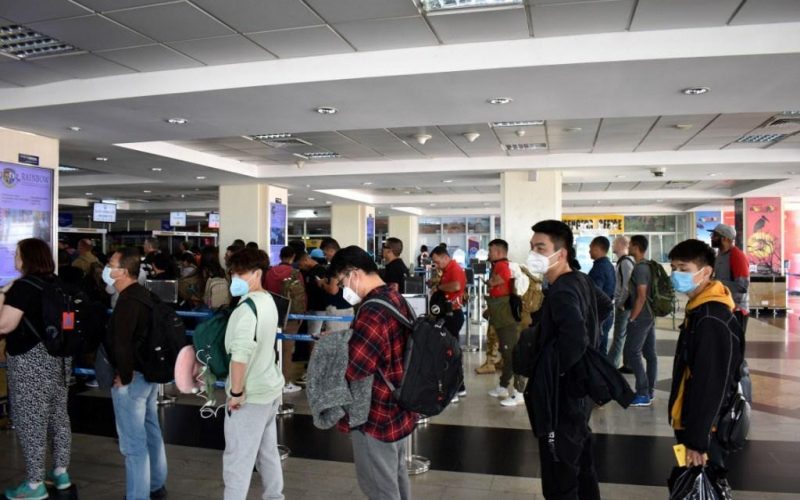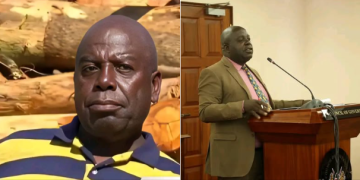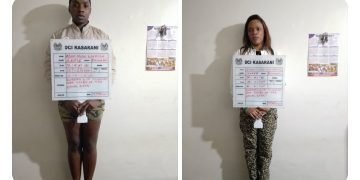New reports indicate that a Chinese contractor reportedly pocketed Sh4.3 billion of taxpayers’ money for doing zero work in a mega project at the Jomo Kenyatta International Airport that has infuriated MPs.
The firm had won a Sh64 billion tender for the construction of Greenfield Terminal, which was cancelled in March 2016. There were claims that its cost had been inflated by up to Sh9 billion.
President Kenyatta presided over the project’s ground-breaking ceremony, which cost the taxpayer Sh75 million on May 23, 2014.
According to a report that is set to be considered by the National Assembly next week, MPs found out that Sh4,310,901,806 had been paid to the contractor but there was no evidence of work done.

The Public Investments Committee’s (PIC) report wants the Kenya Airports Authority (KAA) to immediately start the process of recovering the money.
“The accounting officer for KAA should immediately commence recovery of proceedings of the advanced monies to both the contractor and the consultants,” states the report.
Chaired by Mvita MP Abdulswamad Nassir, the committee said there was no basis for the payment.
“Throughout our investigations, we did not receive any submission on why the amount was paid to the contractor. It should be recovered,” said Mr Nassir.
“We have done our part as PIC and exposed how taxpayers’ money was misused. It should be brought back to the people,” he added.
A response provided by the management indicated that the money was paid to the contractor as an advance payment as provided for in the contract agreement. It was to be recovered from subsequent progress payments.
“The payments made to both the contractors and consultants were not based on evidence of evaluated works. Since the contract had been terminated without any work done, it was not clear why the management of KAA had not instituted measures to have the advanced monies refunded,” states the report.
The committee said the project was marred by illegalities from the onset since the authority entered into the agreement before the contractor had secured a financier for the project. Clause 5 of the Request for Proposal required the contractor to secure a project financier as a condition for award.
However, KAA signed a deal with Anhui Construction Engineering Group Ltd in a joint venture with China Aero-Technology International Engineering Corporation on November 13, 2013 and was given possession of site on December 6, 2013 before a project financier had been identified.
The supervision contract was awarded to Louis Berger Group and Runji Partners (LBG) at a US$8.83 million.
“The management of the KAA was in breach of Clause 5 of the contract agreement that made it a condition precedent for the contractor to secure a financier before signing the deal. It was not clear why KAA was in hurry to sign a contract whose condition precedent of securing a financier had not been made,” states the report.
The two contractors told the committee that they had identified two financiers – China Development Bank Corporation and China Exim Bank – whose engagement was to be done by KAA.
Directors of the company told the committee in March that by the time the deal was being signed, the said engagements had not crystallised into a valid contract of financing by the authority.
“The then KAA accounting officer should be reprimanded for entering into a contract before securing a financier,” states the report.
The contractor is reportedly demanding Sh17 billion from KAA for breach of contract. The company wants the authority to pay Sh2 billion for the preparation of bill of quantities, Sh2.4 billion in additional costs, and Sh708.2 million value added tax charged by Kenya Revenue Authority.
The firm has demanded an additional Sh5.6 billion, which includes the balance of the contract for the bill of quantities, value added tax, and interest and penalties. The committee has, however, warned the authority against making any payment to the contractor before seeking a legal opinion from the Attorney-General.
MPs also termed the Sh75 million spent for the ground-breaking ceremony as irregular and curious. They said the amount was not provided in the original scope of work and therefore an irregular variation of the contract.
Once completed, it was to have 50 international and 10 domestic check-in counters, 32 contact and eight remote gates, associated apron with 45 stands and linking taxiways.
The terminal was to be an environmentally sustainable building and be certified by the World Green Building Council using either Leed or green star certification processes. The project was to be implemented on a design and build contract.









































